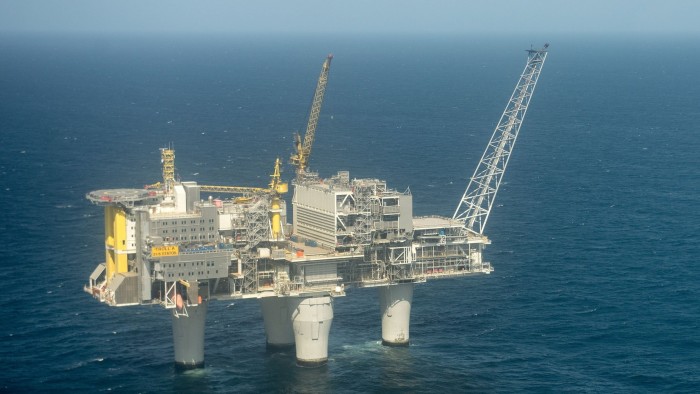Stay informed with free updates
Simply sign up to the Oil & Gas industry myFT Digest — delivered directly to your inbox.
The writer is David S Lobel professor in business and sustainability and professor of political economy at Stanford University
I recently served as an expert witness in court. A question put to me was: how will increased production of natural gas contribute to climate change?
This question is relevant for European policymakers as well. The demand for natural gas is expected to explode over the next few decades. The UK plans to increase its import of gas and, while the EU plans to ban new Russian gas contracts using trade law, Austria argues that the bloc should remain open to resuming Russian imports.
But the answer isn’t obvious. Certainly, the world must reduce its reliance on energy sources responsible for greenhouse gases. These include coal, oil and gas. Much of the fossil fuel still to be discovered must remain in the ground forever if we are to meet the internationally agreed 2C temperature target (not to say the 1.5C target of the 2015 Paris accord). Instead, we must develop the capacity to produce energy from renewables.
That will take a while, however. In the meantime, gas has been acknowledged as a transitional energy source because it contains half the carbon per unit of energy produced compared with coal. As different sources of energy compete, they are substituted for one another. More gas will crowd out coal.
Regardless of its relevance, the answer to how much this gas contributes to climate change in the long term has remained incomplete.
In a forthcoming article, Katinka Holtsmark of the University of Oslo and I uncover what we refer to as “the gas trap”. This is as follows. In the short term, gas will outcompete coal. The capacity to produce energy with renewables takes time to develop. So, for any given capacity to produce renewables, it is tempting to raise the production of gas to replace coal — due to urgent concerns about climate change.
But the long-term consequence of this is more emissions, not less. Investments in renewables will fall as soon as it is anticipated that we will use gas to outcompete coal. The increased production of natural gas reduces our willingness to pay for additional sources of energy, driving down prices for renewables and other energy sectors.
Thus, the well-meaning short-term strategy of outcompeting coal backfires. Ultimately, it is counter-productive.
Our findings verify that the gas trap is both realistic and quantitatively important when it comes to the energy market in Europe. More gas does indeed reduce total emissions in the short term. However, when we factor in the fall in renewables investment, total emissions end up being larger.
Thus, a climate-concerned country would benefit from committing in advance to produce less gas. Suppose, say, that Norway’s policy reflects that the social cost of carbon is €107 per tonne of CO₂ equivalents (the OECD claims so). Suppose, next, that future policies will instead reflect a cost equal to €205 per tonne of CO₂ equivalents (as the Norwegian government has announced that it will). With that increase, we estimate that Norway would benefit from reducing gas production by 10 per cent, if it could pre-commit ahead of time, encouraging investments in renewables. If not, it ends up raising gas production by 9 per cent.
The inability to pre-commit would contribute to 19-38 per cent more gas being exported from Norway to Europe. Emissions increase by similar amounts because, in the long run, gas replaces renewables.
How can this problem be solved? One answer is to raise direct investments in renewables. Another is to regulate upstream activities related to search and exploration for oil and gas. This would not need to happen if countries could pre-commit to lower quantities. But, when incentivised to outcompete coal, it becomes necessary to tie one’s hands by limiting future capacity. That way, investments in renewables will remain profitable.
A third part of the solution can be limiting the capacity to trade and transport gas. Export and import terminals for LNG survive for years, thereby discouraging investments in renewables. This should be considered alongside security concerns before Europe discusses whether to re-establish or restrict gas imports from Russia.
These policy measures are most important in the near term. In the long run, multiple gas producers might be able to commit to supply-side treaties that limit the quantity of extraction. Such a treaty should not replace the Paris Agreement, but it could help avoid the gas trap.

